- KHT approached by a law firm acting on behalf of their client
- Client is a UK domiciled individual in his early 40s with estate valued at circa £25million
- The estate comprises a high valued residential property destined to be inherited by the individual’s son, and a considerable cash balance
- Law firm approached KHT following the client’s receipt of tax advice for structuring services in order to protect the property within the estate and avoid potential future inheritance tax liabilities
Considerations:
1. Taxation
Prior to establishing any type of structuring for a client, it is imperative to understand the tax implications first. Whilst we don’t have tax expertise in-house, we are able to provide clients with access to tax planning services through our colleagues within the wider Knox group of companies. In this instance, the client had already received tax advice, so our private client team were able to act swiftly once they had carefully reviewed the tax advice given.
2. Structure
As with all clients we invest time and care to clearly understand the desires and needs of each individual client, and work collaboratively with their other professional advisers. Armed with this understanding, we were able to offer advice on the most appropriate structure to meet the client’s specific needs. We recommended a discretionary trust for which the assets were settled in by the client, with Knox House Trust offering trustee and accounting services for the trust.
Trusts are an effective vehicle for use in wealth protection and tax planning, and in particular a discretionary trust also allows clients a more flexible form. This is useful when providing for children, where changing needs may occur as time goes on.
3. Trustees
A discretionary trust is the most commonly used in the Isle of Man (and the offshore world in general). Trustee powers are wide ranging and enable them to decide which beneficiaries will benefit; how much they will receive but the beneficiaries have no right to receive a distribution. A discretionary trust will usually allow the trustees to appoint additional beneficiaries or to remove existing ones, and normally enable the trustees to distribute the income and capital of the trust to the beneficiaries in varying amounts and at various times, as deemed appropriate by the trustees.
The settlor is able to provide guidance to the trustees, usually in the form of a letter of wishes, which details how they would like the trustees to exercise their discretion, but this is not binding.
4. Client Accounting:
With changing regulations and increased transparency, the client decided to engage Knox House Trust’s client accounting team to ensure the assets could be easily monitored now and into the future. A qualified accountant was appointed as the dedicated point of contact, who works closely with the client services team to ensure the relevant financial statements and reporting are completed to provide compliance and peace of mind for all concerned.
5. Client Solution:
Our client is now happy that his assets are securely managed and protected. He has comfort in the knowledge that the trust and its financial aspects are being looked after by qualified individuals, protecting his assets for his and his family’s future.
Why Choose KHT?
- Clients at the centre of everything we do
- Wealth of experience, understanding and technical knowledge
- We nurture long term relations with clients and advisers
- Collective strength of the wider Knox group of companies

